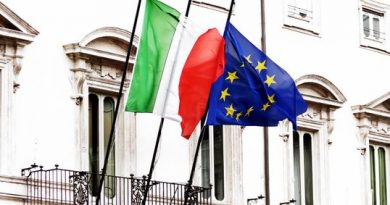Pakistan Struggles for Democracy
By Tien Phan
Staff Writer
Former Prime Minister of Pakistan Nawaz Sharif was nominated to be the leader of the Pakistan Muslim League-Nawaz (PLMN) on October 2, reports Reuters. Sharif was forced to resign as prime minister of Pakistan after his personal financial information was leaked during the ‘Panama Papers Incident,’ which led to his disqualification on July 28th of this year, reports The Economic Times. He was involved in a money laundering and tax evasion incident along with his four children, says BBC.
This was not the first time that Sharif was involved in these types of allegations. The Washington Post said that in 1999, Sharif was ousted and sent into exile after he and his family ran afoul of the military. The military accused Sharis of trying to establish civilian supremacy and placed him in exile. After being elected again in 2013, Sharif got removed from office once more after being accused of hiding his family’s vast wealth outside of the country by the Supreme Court.
These incidents have not stopped Nawaz Sharif from re-entering politics. Even with the latest oust, he was still in power after installing of Shahid Khaquan Abbasi, a loyalist, to the Prime Minister position. This return is a bold move by Nawaz Sharif, but necessary for the PLMN. Aftab Khan Sherpao, a veteran legislator, said, “Nawaz Sharif’s ordeal hasn’t ended, but his decision to return shows he has courage and that those who said he was running away were wrong,” as reported by The Washington Post.
On October 4, 2017, it was confirmed that Nawaz Sharif will still be the leader of the PLMN party according to the Economic Times. This action seemingly contradicts the Representation Act of 1976, which states that a disqualified person could not hold the office of a party. While that is true, President Mamnoon Hussain, who is affiliated with the same party, signed The Election Act 2017 into law, saying that it allows politicians disqualified from holding public office can still lead political parties, says Daily Pakistan and the Economic Times. That law was challenged by a lawyer, Advocate Zulfiqar Bhutta, saying, “If we go through the Election Bill 2017, which allow(s) any person who is disqualified (for not being) Sadiq (truthful) and Ameen (trustworthy) by any court or otherwise declared his existence as member of the National Assembly is not in the interest of the country” continuing to “control the basis business of the National Assembly, could be dangerous to the country”, reported The Express Tribune.
Pakistan’s democratic history has been quite a struggle due to it being ruled by the military most of the time, says the Financial Time. Even now with elections and officials that are more willing to carry out the people’s will, it is hard to believe what those officials’ intentions are, especially Sharif’s because of his history of corruptions. The democracy that is existing in Pakistan at this moment is a fragile one. The people’s interests are not put first hand because top officials, in the name of democracy, are fighting to keep their powers in office.
Now, Sharif is waiting for the General Election in 2018 to see if he is still able to hold an office after his corruption charges, the Economic Times says. The Pakistan people will see whether they will have a democracy or it will turn to be a dictatorship.

